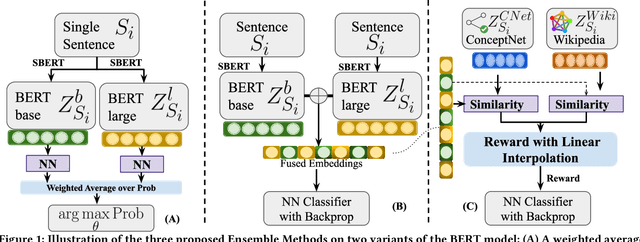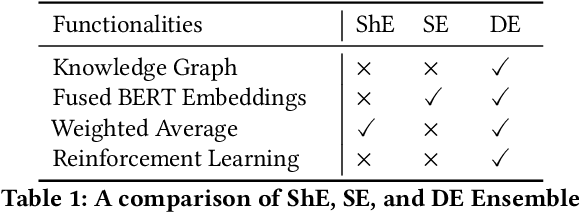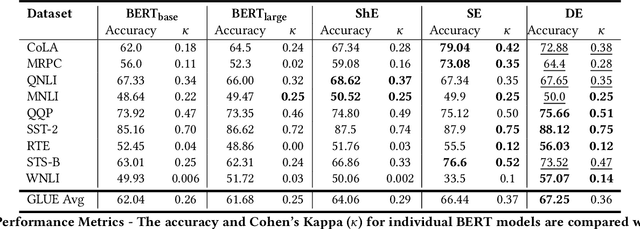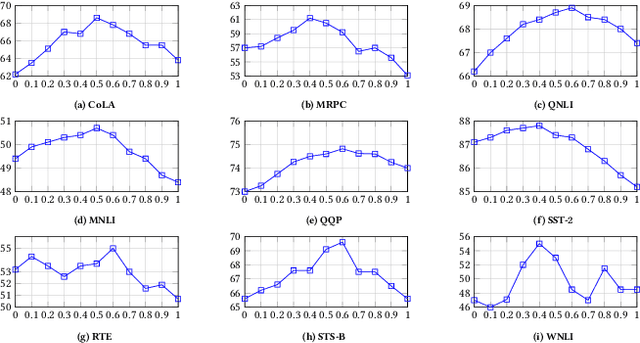Nancy Tyagi
Leveraging Knowledge and Reinforcement Learning for Enhanced Reliability of Language Models
Aug 25, 2023



Abstract:The Natural Language Processing(NLP) community has been using crowd sourcing techniques to create benchmark datasets such as General Language Understanding and Evaluation(GLUE) for training modern Language Models such as BERT. GLUE tasks measure the reliability scores using inter annotator metrics i.e. Cohens Kappa. However, the reliability aspect of LMs has often been overlooked. To counter this problem, we explore a knowledge-guided LM ensembling approach that leverages reinforcement learning to integrate knowledge from ConceptNet and Wikipedia as knowledge graph embeddings. This approach mimics human annotators resorting to external knowledge to compensate for information deficits in the datasets. Across nine GLUE datasets, our research shows that ensembling strengthens reliability and accuracy scores, outperforming state of the art.
Simple is Better and Large is Not Enough: Towards Ensembling of Foundational Language Models
Aug 23, 2023


Abstract:Foundational Language Models (FLMs) have advanced natural language processing (NLP) research. Current researchers are developing larger FLMs (e.g., XLNet, T5) to enable contextualized language representation, classification, and generation. While developing larger FLMs has been of significant advantage, it is also a liability concerning hallucination and predictive uncertainty. Fundamentally, larger FLMs are built on the same foundations as smaller FLMs (e.g., BERT); hence, one must recognize the potential of smaller FLMs which can be realized through an ensemble. In the current research, we perform a reality check on FLMs and their ensemble on benchmark and real-world datasets. We hypothesize that the ensembling of FLMs can influence the individualistic attention of FLMs and unravel the strength of coordination and cooperation of different FLMs. We utilize BERT and define three other ensemble techniques: {Shallow, Semi, and Deep}, wherein the Deep-Ensemble introduces a knowledge-guided reinforcement learning approach. We discovered that the suggested Deep-Ensemble BERT outperforms its large variation i.e. BERTlarge, by a factor of many times using datasets that show the usefulness of NLP in sensitive fields, such as mental health.
 Add to Chrome
Add to Chrome Add to Firefox
Add to Firefox Add to Edge
Add to Edge